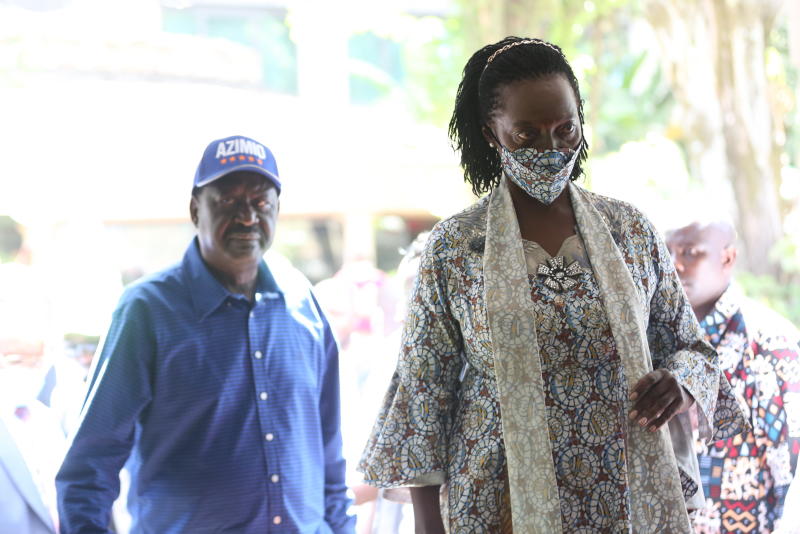×
The Standard e-Paper
Stay Informed, Even Offline

Azimio La Umoja Presidential candate Raila Odinga (left) with NARC Kenya leader Martha Karua at Nairobi Serena Hotel on March 23, 2022 [Elvis Ogina, Standard]
Had politics been as easy as ABC, Azimio leader Raila Odinga and Deputy President William Ruto – frontrunners in this year’s presidential election – would have already introduced their running mates to the world and declared theirs the winning ticket.